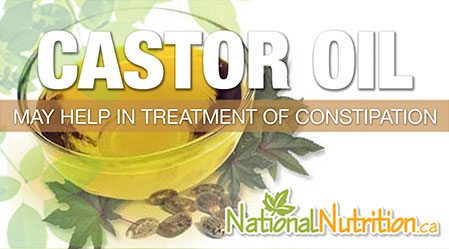
Castor oil can be used topically to treat constipation, burns, cuts, and even stalled labour.
Castor Oil Benefits
Updated Oct. 05th, 2023 | Read Time: 5 Minutes | What You Will Learn:
- What Is Castor Oil?
- Where Is Castor Oil From and How Is It Made?
- Extraction Methods: Pressed vs. Hexane Oil Extraction
- Top 7 Benefits of Castor Oil
- Castor As A Laxative
- Induce Labour With Castor Oil
- Natural Denture Cleaner
- Castor Oil For Arthritic Pain & Inflammation
- Castor Oil Support For Skin Conditions
- Hair Benefits of Castor Oil
- Detoxifier
- How To Use Castor Oil
- Castor Oil Packs
- Safety & Precautions
What Is Castor Oil?
The oil extracted from the castor bean (Ricinus communis) has long been used both by the food industry and as medicine. In traditional folk medicine, castor oil was most commonly used to for its benefits on constipation, and induce vomiting in cases of poisoning. It has also been used for skin disorders, such as burns, sunburns, cuts, and abrasions. Another common use for castor oil is as a rub or pack for a wide variety of complaints, such as headaches, muscle pain, inflammatory conditions, and abdominal upset.
Where Is Castor Oil From and How Is It Made?
Castor oil has been used from antiquity with evidence of its cultivation being discovered in 500 B.C. in central Egypt. Castor oil's first medicinal use was documented in the Ebers Papyrus, an ancient Egyptian medical treatise, where it was used in tombs dating back to 4,000 B.C., for irritation and inflammation, to stimulate labour and as fuel in lamps.
Castor oil is made by drying the hull, then removing the seed. The seed is cleaned and then further heated to harden the the inside of the seed so it can be extracted via pressing or solvent methods.
Extraction Methods: Pressed vs. Hexane Oil Extraction
Castor oil can be made from either mechanical pressing, solvent extractions or a mix of both methods.
Pressing extraction yields a more pure oil with greater health benefits. After the castor seed is hulled and dried, this method uses a screw or hydraulic press which squeezes the oil out of the seed. This can be done at high or low temperatures, with lower temperatures, known as cold pressing, favoured as heat can ruin the integrity of the oil's properties.
Solvent extraction, as the name suggests, is done with the use of a solvent, the most popular being hexane. Hexane is a petroleum based solvent used to extract oils from seeds and nuts. It is a very easy and efficient method of extraction; however, with hexane extracted oils, you can sometimes have hexane residues which is why most practitioners will recommend expeller or slow pressing instead.
Top 7 Benefits of Castor Oil
1. Castor As A Laxative
One of the original uses of castor oil was to ease constipation and promote healthy bowel function. This can be done by taking castor oil soft gels that are made to be ingested or by using a pack and applying topically. This should be used with caution as castor oil can quickly cause diarrhea, which can result in dehydration and nutrient loss.
2. Induce Labour With Castor Oil
Because castor oil is an effective stimulant to the bowels, it has been theorized to also stimulate the uterus and cause contractions that can help speed labour. The research into this has been inconclusive, and further research is required. One study found that a single dose of 60ml of food-grade castor oil initiated labour in at least half of full-term women in 24 hours. It can also stimulate the initiation of labour in women whose water has broken, but whose labour has not yet progressed. This showed a reduction in women requiring a Cesarean section. This is a treatment that is commonly used by midwives around the world to promote healthy labour in stalled situations.
3. Natural Denture Cleaner
Due to castor oil's antibacterial properties, it can make for a great denture cleanser. A lab study that was published in the Journal of Applied Oral Science found that if you brush castor oil on your dentures and then soak them in a solution mixed with castor oil you can reduce candida and fungal infections caused by yeast on your dentures.
We suggest opening a castor oil soft gel and brushing the contents onto your dentures, then adding the contents of 2-3 soft gels into a small amount of water and leaving your dentures to soak. The reason you want to use softgels is because they are made with a food-grade oil.
4. Castor Oil For Arthritic Pain & Inflammation
Castor oil is known to reduce inflammation which is what causes the pain associated with arthritis. This suggests that this oil may help reduce pain brought on by arthritis.
Research has shown that castor oil soft gels provided similar relief as arthritic medication for participants who suffered from pain due to knee osteoarthritis with fewer side effects.
Others have looked at castor oil's effects on pain when applied topically and saw some improvements but more research is needed. As always, it is advised to speak to your healthcare provider before switching or adding remedies if you are currently taking prescription medication.
5. Castor Oil Support For Skin Conditions
Castor oil can be used topically on the abdomen in a castor oil pack to help with skin conditions such as eczema and acne. It can also be directly applied to skin conditions to help with burns, cuts, abrasions, dermatitis, and acne. Derivatives of castor oil are also commonly used in skincare products like lotions, creams, and lip balm.
Castor oil can also be used on the face or body at night to provide anti-aging benefits. Castor oil keeps skin hydrated which in turn keeps it supple, glowing and youthful. While this is a thicker oil, it has antibacterial properties so shouldn't cause acne or breakouts; however, if you are concerned about clogging your pores either try a patch test or wash it off after an hour or two.
6. Hair Benefits of Castor Oil
Castor oil helps your scalp by combating dryness and getting rid of build-up when massaged in and scrubbed out with water and shampoo. Some people mix rosemary oil with castor oil when making a scalp treatment because both have antibacterial and anti-fungal properties which help keep your scalp clear, clean and healthy. By keeping your scalp healthy and build-up-free, you can promote hair health and growth. This oil can also help moisturize your hair when applied as a hair mask for 30 minutes once or twice a week.
7. Detoxifier
Castor oil offers detox properties when used topically as a castor oil pack, it can draw out toxins that have accumulated in your body. Detoxing your liver and lymph nodes reduces swelling in the lymph nodes, allowing for better flow.
This works by the oil stimulating the lymph and liver by increasing the lymphocyte count, allowing your body to speed up the removal of toxins from your tissues. This is great for your overall health because congestion in your lymph nodes can lead to inflammation and disease.
How To Use Castor Oil
The dose of castor oil depends on the size and weight of the person taking it. Full-term pregnant women can take 60ml of food-grade oil or soft gels to induce labour. As a laxative, it is best to start with a smaller dose and repeat every few hours until desired results are achieved to avoid diarrhea. Castor oil packs (or rubs) are another popular way to use castor oil and can treat a variety of abdominal conditions, and help with detoxification.
Castor Oil Packs
One of the most common uses of castor oil is in a topical castor oil pack. This is achieved by soaking a piece of flannel with castor oil and laying it on the abdomen or the affected area. This is covered with plastic and then a heat source such as a hot water bottle or heating pad is applied to warm the area and allow the castor oil to soak in. This treatment is commonly used for stagnation conditions in the abdomen, such as liver toxicity, and constipation. If going through all the preparations of a full castor oil pack is more work than you are willing to do at the moment, many people will opt instead for a castor oil rub. This involves simply rubbing castor oil into the abdomen using gentle clockwise circles to promote proper digestive motion. Your hands and the gentle friction will slightly heat the oil naturally, and the motion promotes GI motility. Either of these topical treatments is often the first way castor oil is used to treat constipation as it is a more gentle treatment than ingesting the oil directly. When using castor oil topically, be sure to wear old clothing to cover those areas afterwards, as castor oil easily oil stains fabrics.
Safety & Precautions
While castor oil is mostly safe, there are some precautions to know about.
If you are taking castor oil internally through capsules, be careful to not take a dose that's too high, because this oil does have a laxative effect. It's advised to start with a lower dose and slowly increase to the suggested amount. If you do experience cramping, nausea, vomiting or dizziness, discontinue use and see a health care practitioner if issues persist.
Castor oil is also known for its labour-inducing effects; therefore, pregnant women should not take castor oil or use it topically. It's also not advised for regular use in children under age 12.
Lastly, when using castor oil topically, it's important to do a patch test to ensure you don't have an allergic reaction or it doesn't irritate your skin.






















Very interesting article and I learned about the use of castor oil for constipation issues. Skin conditions can also improve using castor oil. The use of castor oil has been prominent in early times which I learned. I use castor oil in my eyes to help break up cataracts. My natural path recommended it. Have you ever heard of this use? Midwives use it when attempting to induce labour, although not conclusive it must have demonstrated positive effects to be mentioned in the article. Castor oil packs appear to be an effective method to treat ailments. I was fascinated with the information in this article.
Hello Rebecca,
You are correct, Castor oil has many benefits and has been used for a very long time. It's a great oil to use topically for the skin and hair and if purchased in capsule form, then it's formulated for internal use. We're glad you enjoyed our article and castor oil has been a benefit for you.
Stay healthy & well!
I use it all the time.
Hello Deborah,
Thank you for sharing, we're glad you enjoyed learning about castor oil with us. This oil has so many beneficial uses when applied topically, we're glad you love using it as part of your daily routine. We just published a new article on castor oil packs specifically that we think you'd enjoy. You can find it here: https://www.nationalnutrition.ca/articles/research/castor-oil-packs/
Have a healthy day!